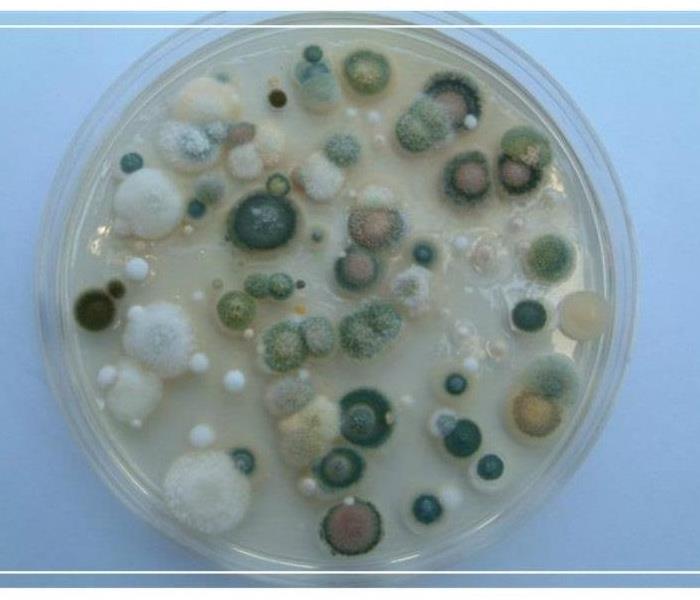Is Mold A Health Risk?
6/13/2017 (Permalink)
Is Mold a Health Risk?
Written By: Tricia Ellis-Christensen
Some types of mold can be a health risk for some people. People's reaction is highly variable and is dependent upon the type, as well as how much of it exists in the home. It is clear that some people are allergic to mold. Further, some populations are more susceptible to the negative effects from exposure. Those who have allergies, asthma, or pulmonary conditions may be more susceptible, as well as children and infants. Those with suppressed immune conditions may risk developing fungal infections in the lungs due to lengthy mold exposure.
The primary response to mold is an allergic response. Not all people are sensitive in this way, just as not all people are allergic to pollen. In minor forms, exposure can cause hay fever symptoms like runny nose, itchy eyes, and sore throat.
Some people develop asthma as part of an allergy response to mold. This is one of the severe symptoms of allergy. Asthma can be dangerous and can become progressively worse if exposure continues. When possible, those who have an asthma response should have their environments as mold-free as possible. However, this can be challenging.
One can generally clean the mold one can see, such as that which exists on walls. There is plenty that we don’t see, both indoors and out that may cause health issues. Proper ventilation is of utmost importance. Air purifiers may help reduce airborne spores that one can't see. Keeping it from regrowing by wiping down windows if they become moist, and keeping bathrooms clean may also help reduce mold in the home environment. Bathrooms should never be carpeted, as carpet can harbor mold and be difficult to clean.
An allergic response can also lead to greater risk for sinus infections. In fact, those who appear to have chronic sinus infections without a viral cause may in fact be expressing allergies to mold.
The greatest danger is the possibility of developing fungal infections in the lungs. This generally only occurs in those with weakened immune systems. Fungal infections can be challenging to treat, and are worsened when one already has a suppressed immune system. Anti-fungal medications can treat fungal infections, but many of them have adverse side effects.
One type, Stachybotrys chartarum, is sometimes called toxic mold. It tends to develop after a home has been flooded. People do show a higher allergic response to it, and it should be eliminated as soon as possible.
To eliminate an existing mold problem, call the experts at SERVPRO of St. Clair Shores (586) 741-5050.






 24/7 Emergency Service
24/7 Emergency Service
